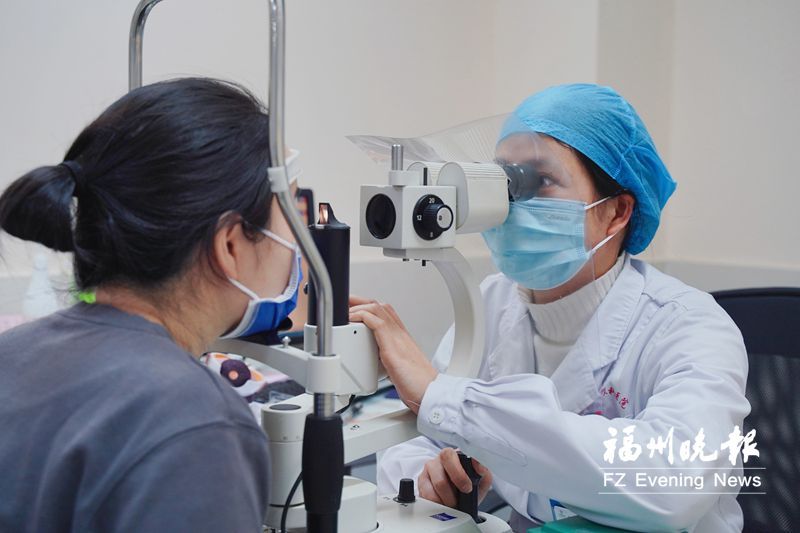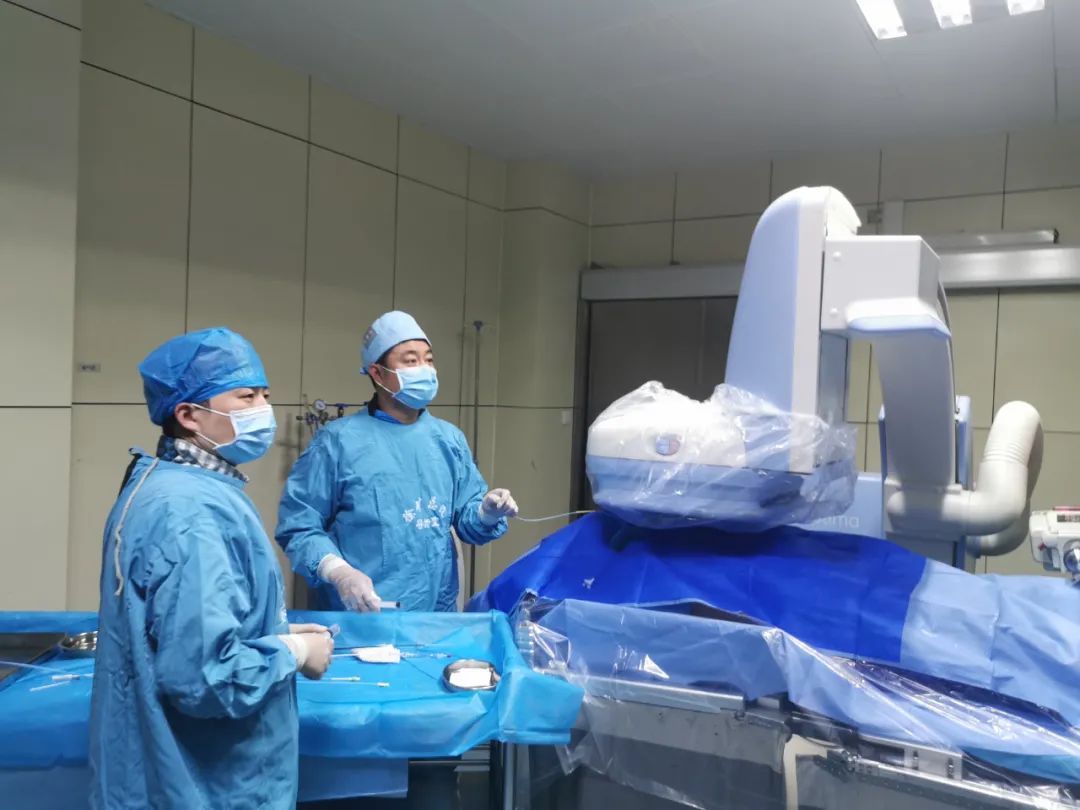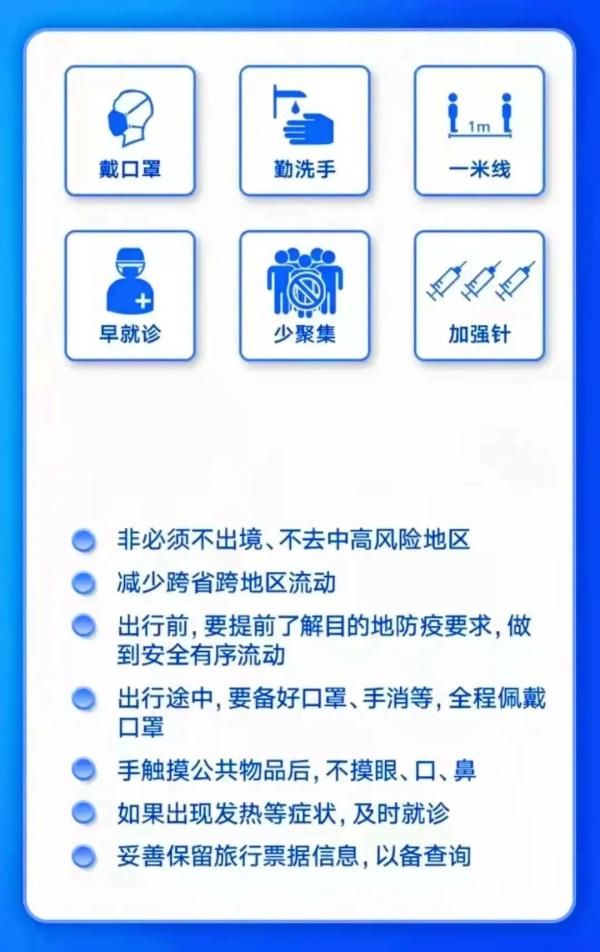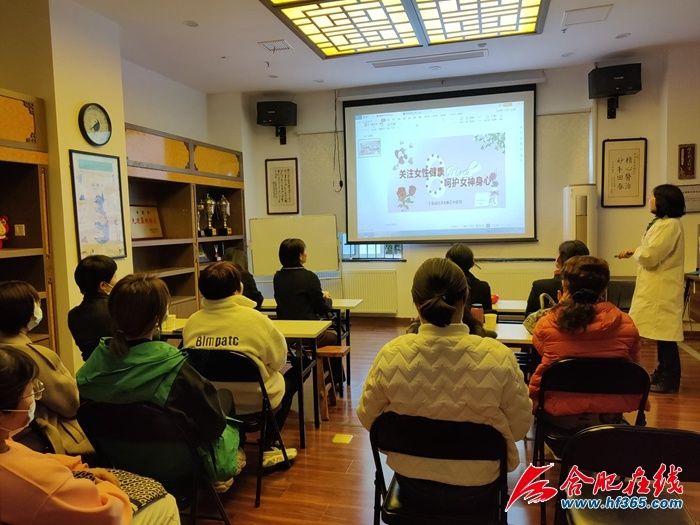內容目錄
True Points
A third of the woman’s liver was “eaten” after a parasite found inside the woman was Fasciola hepatica. Fasciola hepatica belongs to the Fasciola, and its adults feed on liver tissue in the final host.
In the early stage of human infection with Fasciola, there are generally no obvious acute symptoms. Patients may experience fever, chills, right upper quadrant, hepatomegaly, and sometimes anorexia, nausea, and vomiting. and urticaria. During this time, fascioli exit the gut, pass through the abdominal cavity, and migrate to the liver parenchyma. Symptoms in the acute phase are mainly related to parasite-induced inflammation, tissue damage, toxicity and allergic reactions.
Most flukes are food-borne parasites, so prevention relies heavily on dietary hygiene. It is recommended to avoid uncooked freshwater fish and shrimp, and if they are eaten, they must be fully cooked.
Verifier |OlibaoTrauma and Emergency Medicine Consultant
Recently, a news article #GuangxiWomen’s liver was eaten by a third of insects# has become a hot search. It is said that Ms. Feng from Quanzhou, Guilin suffered from unexplained upper abdominal pain and nausea. Afterwards, the doctor found a parasite in Ms. Feng’s liver through examination and diagnosis and treatment. This parasite is shaped like a fish and is about 3.5X2.0cm in size. After being taken out, it can still swim and still have destructive power. Experts said that what was taken out of Ms. Feng’s body was not the liver fluke, nor the fasciola, but the giant hepatic fluke, which was several times larger than the liver fluke.

Fasciola hepatica belongs to the fasciola, the adult worms feed on liver tissue in the final host
Frematoids are a common type of parasite that infects the human body. A subset of the flukes, known as liver flukes, mainly infect the liver, including Clonorchis sinensis (also known as Chinese liver fluke), T. musculus (also known as Southeast Asian liver fluke), T. feline (feline liver fluke), and liver flukes Types of flukes (sheep liver fluke), Fasciola hepatica, etc.
In China, the most common liver fluke is Clonorchis sinensis (C. sinensis), also known as liver fluke, especially in Guangdong, Guangxi, Hainan and other regions. Infection of freshwater fish and shrimp (eg Shunde Yusheng) containing cystic larvae of Clonorchis sinensis. It not only causes liver and bile duct inflammation and lesions, but also bile duct cancer and liver cancer. Clonorchis sinensis is now a group 1 carcinogen listed by the World Health Organization’s International Agency for Research on Cancer. Clonorchis sinensis is also a major parasitic disease in China.
The picture shows Clonorchis sinensis adult (left) and eggs (right)
Source: Centers for Disease Control and Prevention, www.cdc.gov/parasites/clonorchis
In this news, the patient was infected with Fasciola hepatica. Slightly different from Clonorchis sinensis, Fasciola hepatica belongs to Fasciola hepatica, and Fasciola hepatica is the same as Fasciola hepatica.
Fasciola hepatica and F. gigantica are very similar in morphology and life history. The adults of the two species of Fasciola mainly parasitize ruminants such as cattle, sheep, camels, deer, and sometimes horses, rabbits, macropods, and some rodents. The intermediate hosts of the two are mainly snails, including the species of the genus Cone snail, the soil snail, the truncate snail, and the pseudoamber snail. However, the two species of fasciola infested snails overlap and differ.

The left is the adult Fasciola hepatica, the maximum can be 30mm*15mm; the right is the adult Fasciola hepatica, the maximum can be 75 mm*15mm
Fasciola hepatica is found on all inhabited continents, especially where cattle and sheep are raised. Human infections have been reported in parts of Europe, the Middle East, Latin America, the Caribbean, Asia, and Africa, with relatively few reports in Oceania and North America. Fasciola hepatica is mainly distributed in tropical and subtropical regions, and human infection cases have been reported in parts of Asia and Africa, especially in Egypt. In addition, some “intermediate form species” between Fasciola hepatica and Fasciola hepatica have been reported.
The developmental process (life cycle) of Fasciola begins with the release of eggs in the feces of the definitive host. The eggs hatch in warm water and develop into miracidia, which lose their cilia to become cyst-like sporocysts, which enter the snail for further development.
In snails, sporocysts develop into larcidia, which in turn develop into cercariae. The cercariae leave the snail after maturity, swim freely in the water body, attach to aquatic plants such as celery, lettuce, water chestnut, water chestnut (horseshoe), and fall off the tail to form cysticerci.
After humans, cattle, sheep and other final hosts ingest aquatic plants containing cysticercosis, the cysticercoid detaches from the intestinal tract, penetrates the intestinal tract, passes through the body cavity, and passes through the parenchymal tissue of the liver. , migrate to the bile duct to mature, causing inflammation and lesions in the bile duct, liver and pancreas. Adult worms excrete eggs through the intestines, and the cycle starts over and over again.

The picture shows the life history of Fasciola hepatica, including Fasciola hepatica and Fasciola hepatica
Source: Centers for Disease Control and Prevention,
www.cdc.gov/dpdx/fascioliasis/index.html, translated by the author
Fasciola adults feed on liver tissue in the final host and digestive glands and liver tissue in the intermediate host, but do not eat in the free-living stage.
The patient’s liver in the news was eaten by Fasciola hepatica. Because the liver parenchyma has no pain nerves, patients may not feel pain in the early stages of the disease. However, human fascioli infection can cause liver damage if left untreated, and in severe cases can lead to liver failure or even death. In addition, persistent and severe infection can cause liver fibrosis and cirrhosis, possibly causing cholangiocarcinoma.
There are currently tens of millions of people infected with Clonorchis sinensis in China. However, human Fasciola infection is relatively rare in my country. Since the first case of Fasciola hepatica infection from Fujian Province was reported in my country in 1921, there have been only more than 100 confirmed cases reported, most of which were Fasciola hepatica infection, and very few were Fasciola hepatica.
From the end of 2011 to the beginning of 2012, an outbreak of Fasciola hepatica occurred in Dali Prefecture, Yunnan Province. A total of 26 patients were diagnosed with Fasciola hepatica infection. Experts found Fasciola ova in the feces of cattle and sheep, and found Fasciola fasciola (the intermediate host of Fasciola gigantic) in the ditch environment, and found Fasciola larvae in their bodies.
Further investigation by experts found that some farmers planted Houttuynia cordata in the ravines, and applied cattle and sheep dung in the Houttuynia cordata paddy fields; a large number of snails were born in the paddy fields; local residents were widespread It is customary to eat cold Houttuynia cordata with coriander and green onions as condiments, and the parsley and green onions are often soaked in the puddles where the snails grow before they are harvested and sold, which eventually led to the outbreak of Fasciola hepatica.
What are the symptoms of Fasciola hepatica infection?
In the early stage of human infection with Fasciola, there are generally no obvious acute symptoms. Patients may experience fever, chills, right upper quadrant pain, hepatomegaly, and sometimes anorexia, nausea, vomiting and Symptoms such as urticaria. During this time, fascioli exit the gut, pass through the abdominal cavity, and migrate to the liver parenchyma. Therefore, acute phase symptoms are mainly related to parasite-induced inflammation, tissue damage, and toxicity and allergic reactions. Acute symptoms usually resolve within 6 weeks. Sheep infection is more severe, mainly because of the reaction caused by swallowing a large number of cysts (thousands).
In addition to migrating to the liver, Fasciola can also migrate ectopically to the lungs, subcutaneous tissue, pancreas, genitourinary tract, eyes, or brain.
The chronic phase, also called the biliary phase, usually begins about 6 months after infection and can last 10 years or more. Patients may be asymptomatic, or they may experience symptoms such as abdominal pain, diarrhea, nausea, vomiting, weight loss, liver enlargement, and jaundice (yellowing of the skin and whites of the eyes, suggesting liver damage). At this time, it is mainly because the adult worms block the bile duct and chemical stimulation, causing inflammation and lesions of the bile duct and liver. Inflammatory diseases may occur intermittently. Therefore, for unexplained recurrent hepatobiliary inflammation, the possibility of liver fluke infection should be considered.
How is fluke disease diagnosed?
The doctor will conduct an initial assessment based on the patient’s medical history, symptoms and signs, and then conduct some targeted tests, such as:
Stool examination: Liver flukes lay eggs in the bile ducts of the liver, the eggs are excreted through the intestines, and the eggs are sometimes found in the stool.
Immunological examination: After the human body is infected with parasites, the immune system will produce corresponding immune substances (antibodies), which can directly detect whether there are corresponding immune substances in the human body to initially screen for infection .
Imaging tests: such as ultrasound, computed tomography (CT), magnetic resonance imaging (MRI), endoscopic retrograde cholangiopancreatography (ERCP), or cholangiography, and sometimes endoscopy Worms can also be found.

Pictured in a 13-year-old patient with Fasciola hepatica, ERCP
Source: Agin M, Kayar Y, Dertli R (September 16, 2020) Diagnosis and Treatment of Fasciola Hepatica With Endoscopic Retrograde Cholangiopancreatography in a Child Patient: Case Report. Cureus 12(9): e10486. doi:10.7759/cureus.10486
Tractomiasis can be treated with anthelmintics and, if severe, endoscopy or surgery
For Clonorchis sinensis, drugs such as praziquantel and albendazole are usually used. However, Fasciola has a poor response to these two drugs, and is mainly treated with drugs such as triclobendazole and nitazoxanide.
If the disease is severe and complications such as biliary obstruction and gallstones occur, endoscopy or surgery is usually required.
If you feel unwell and have a history of unclean diet, it is best to go to the relevant department of the hospital (usually general practice, gastroenterology) for medical treatment, and do not self-medicate.
Prevention of fluke disease requires attention to dietary hygiene
Most flukes are food-borne parasites, so prevention relies heavily on dietary hygiene.
The high incidence of Clonorchis sinensis (liver fluke) in southeastern and northeastern my country is mainly due to the patient’s active consumption of uncooked freshwater fish and shrimp, such as “fish raw”,”Fish porridge” and so on. Therefore, we recommend avoiding uncooked freshwater fish and shrimp. In addition, snails (snails) contain a variety of parasites and must be fully cooked if eaten. Failure to wash hands after handling raw food and mixing raw and cooked cutting boards and utensils can also lead to infection. Dips do not kill parasites.
Fasciola, including Fasciola hepatica and Fasciola hepatica, attach to aquatic plants during development, such as celery, lettuce, water chestnut, water chestnut ) Wait. To prevent parasites or other diseases, people should avoid eating raw aquatic vegetables or vegetables soaked in puddles, preferably well washed and boiled. Also, avoid drinking unboiled raw water. On the whole, Fasciola is rare in my country, so there is no need to worry too much.
References
[1] CDC. Fascioliasis. Available https:https://www.cdc.gov/dpdx/fascioliasis/index.html. Accessed on Feb 24, 2022.
[2] Karin Leder, Peter F Weller. Liver flukes: Fascioliasis. UpToDate. Available at https://www.uptodate.com/contents/liver-flukes-fascioliasis. Accessed on Feb 24, 2022.
[3] Zhu Xinping, Su Chuan. Human Parasitology, Ninth Edition. People’s Medical Publishing House.
[4] DAWES, B. Fasciola hepatica L., a Tissue Feeder. Nature 198, 1011C1012 (1963). https:https://doi.org/10.1038/1981011a0
[5] Zou Jing, Gu Wei, Jiao Jianming, Du Xiru, He Lianfu, Zhang Ping. The first outbreak of Fasciola giantis infection in 10 cases in Yunnan Province. World Journal of Chinese Digestion 2012; 20( 21): 1978-1981. DOI: 10.11569/wcjd.v20.i21.1978
[6] el-Shazly AM, Soliman M, Gabr A, Haseeb AN, Morsy AT, Arafa MA, Morsy TA. Clinico-epidemiological study of human fascioliasis in an endemic focus in Dakahlia Governorate , Egypt. J Egypt Soc Parasitol. 2001 Dec;31(3):725-36. PMID: 11775099.
[7] Soliman MF. Epidemiological review of human and animal fascioliasis in Egypt. J Infect Dev Ctries. 2008 Jun 1;2(3):182-9. doi: 10.3855/jidc. 260. PMID: 19738348.
Editor of this article: fycfeng
Research shows: China’s new crown inactivated vaccine is effective Defend against Omicron

Severe allergies can be deadly! How to prevent see here

The word “allergies” is mentioned more and more in our lives. Many people who don’t have allergies will feel that “isn’t it allergies? Just sneeze and cough more.” But allergies can hurt us far more than that. Severe allergies can take our lives in a very short period of time…
The doctor issues a health reminder: housewives beware of “sucking” out COPD
Cooking to prevent lung injury, taking birth control pills to be careful to affect the beauty, and having babies at the right age can cure diseases… On the 8th, doctors from multiple departments of Fujian Provincial People’s Hospital provided free consultations for female patients in the hospital, and issued a health remind. Im suffering from chronic obstructive pulmonary disease who burns wood for a long time and cooks for a long time
[Otolaryngology, Dezhou Hospital of Traditional Chinese Medicine] Otolithiasis was finally cured, and a pennant was sent to show thanks h2>
![[Department of Otolaryngology, Dezhou Hospital of Traditional Chinese Medicine] Otolithiasis was finally cured, thank you for sending a pennant](https://p0.ssl.img.360kuai.com/t0199b9d026476139a0.jpg)
Recently, Li Zhen, the chief physician of the Department of Otolaryngology of Dezhou Hospital of Traditional Chinese Medicine, received a pennant from the patient’s family with the words “Superb medical skills protect health and lofty medical ethics for patients” to thank him for his cure vertigo that plagued the patient. Not long ago, Ms. Tian, a 51-year-old patient, suddenly developed dizziness without obvious cause, feeling…
The latest situation of the new crown pneumonia epidemic in Sichuan Province, the whole There are 3 medium-risk areas in the province

The latest situation of the new type of coronavirus pneumonia in Sichuan Province (released on March 9) At 0-24:00 on March 8, there were 13 new confirmed cases of new type of coronavirus pneumonia in Sichuan, all imported from abroad: 1 case was confirmed by asymptomatic infection on March 6th, 4 cases were confirmed by asymptomatic infection on March 7th, and 1 case was 3…
Itchy eyes and eye drops Im suffering from glaucoma

Deputy Chief Physician Wu Zhenzhen examines the patient. Photo courtesy of the hospital Weng Yimu, 74, of Minhou, thought it was just a minor problem because of itchy eyes, so he went to the pharmacy to buy eye drops, but he developed hormonal glaucoma. “Eye drops can’t be dripped randomly!” The doctor of Southeast Eye Hospital reminded that the improper use of eye drops can lead to…
What are the precautions for children’s atomization inhalation? Experts to answer your questions
Huaibei News Network News Since the beginning of the spring, the temperature has repeatedly fluctuated, and many children have been coughing continuously due to colds or causing other respiratory diseases. When the cough is severe, doctors often recommend aerosol inhalation therapy. Zeng Xia, director of the Second Department of Pediatrics at the Municipal Maternal and Child Health Hospital, introduced that atomization inhalation has a rapid onset, good curative effect, and easy…
A man in Xuzhou vomited blood suddenly! It turned out to be a liver problem!

The 45-year-old Mr. Zhao has a family history of hepatitis B and was diagnosed five or six years ago as “decompensated liver cirrhosis after hepatitis B”. , The symptoms of melena were temporarily stopped in the local hospital through endoscopic hemostasis and comprehensive treatment such as blood transfusion and fluid replacement. However…
Top domestic medical-engineering teams gather in Yinchuan
Recently, the 2022 Ningxia Helan Mountain Translational Medicine Summit Forum opened in Yinchuan. Experts from Fudan University, Beihang University and other top domestic medical-engineering teams gathered at the foot of Helan Mountain to discuss translational medicine— —The progress of new technologies in medical-industrial integration to promote scientific and technological achievements in domestic, regional and medical institutions…
If you have early symptoms of stomach cancer, if you have these points, check as soon as possible !

Recently, the hit drama “The World” has come to an end. The character “Zhou Bingyi” in the play “The World” was busy with work and couldn’t eat on time. He could only eat cold food to deal with it. Later, he was diagnosed with gastric cancer, and finally developed to advanced gastric cancer and died, which is embarrassing. Source: TV series “The World”…
The new local epidemic in Gansu is a variant of Omicron, and Gansu CDC has issued the latest prevention and control reminder!

As of 24:00 on March 7, a total of 22 local cases of new coronary pneumonia have been confirmed in Gansu Province. On March 8, the Gansu Provincial Center for Disease Control and Prevention conducted a genetic sequencing analysis of the first five cases of the new coronavirus. The strain is highly contagious, spreads fast,…
Shili Temple Community: Pay attention to women’s health and take care of the goddess’ body and mind

Hefei Online News (reporter Li Jing correspondent Wei Jingjie Liu Yaping text / photo) In order to let the goddesses spend an unforgettable festival, on the occasion of the “March 8th” International Women’s Day, on the afternoon of March 7th , Jinggang Town Shili Temple Community Trade Union and Women’s Federation launched the “Focus on Women’s Health, Care for the Body and Mind of the Goddess”…
Rehabilitation therapist talent shortage, Low professional identity? It should be included in the National Occupational Classification Code

With the accelerated aging of the population and the increase in the number of chronically ill people, the state has paid more and more attention to the development of rehabilitation medicine. But today, the number of professional and technical personnel in rehabilitation in my country is relatively small, and the social demand for rehabilitation medical services is increasing, and the contradiction between the two is prominent. In this regard, Zhou Yanfang, deputy to the National People’s Congress, suggested speeding up rehabilitation…
The Second People’s Hospital of Zhangdian District, Zibo City: How to care for sensitive skin in spring
Sensitive skin is an unhealthy skin condition, not a disease of the skin. It is caused by damage to the skin barrier function, resulting in increased sensory nerve afferent signals, causing the skin to respond to external stimuli The reactivity of the skin is enhanced, triggering the skin immune inflammatory response, involving the complex skin barrier-neurovascular-immune inflammation…
Mobile phone Hit the left eye guy with retinal detachment
From this newspaper (Reporter Liu Rong Correspondent Jiang Changming) Recently, a young man went to the ophthalmology clinic of Xiamen Traditional Chinese Medicine Hospital because of the obvious decrease in vision in his left eye and the feeling of blocking his eyes. Doctor Li Xiujuan found out that he had retinal detachment in his left eye and needed emergency surgery. The doctor asked about the medical history, the patient…
Wanqing·Health Class|How to stay healthy during the Spring Festival< /h2>

Jinhua News Client March 9th news reporter praised Jingzhe just after, the warm and cold, and chronic diseases are most likely to be induced at this time. The health practitioners of the past dynasties believed that the solar terms were very important for health preservation. During the season of stinging, it is advisable to have a balanced diet, regular daily life, and orderly work. Introduced by Yu Zhiyi, deputy director of the Chinese Medicine Department of Jinhua Maternal and Child Health Hospital…
March From 6:00 on the 6th to 14:00 on the 7th, Gansu added 13 new confirmed cases of local new coronary pneumonia
The reporter learned from the Provincial Health and Health Commission on March 7 that from 6:00 to 24:00 on March 6, there were 7 new local confirmed cases in our province, all in Lanzhou New District. At 0-14:00 on March 7, 6 new local confirmed cases were reported in our province, including 2 in Qilihe District, Lanzhou City, 1 case in Chengguan District, 1 case in Honggu District, and 1 case in Jinta County, Jiuquan City…< /p>
[Popular Science] Please be alert to the younger generation of myocardial infarction patients!
![[Popular Science] Please be vigilant about the younger myocardial infarction patients!](https://p0.ssl.img.360kuai.com/t0122b397f57e0ae36c.jpg)
Why young people get myocardial infarction Coronary heart disease is not only in the elderly. In recent years, the growth trend of young people’s disease has accelerated. Blood pressure, hyperlipidemia, hyperglycemia and other basic diseases, and they do not pay enough attention to these diseases, and there are strict lifestyles…
Elderly taking long-term medication must regularly monitor renal function
The prevalence of chronic diseases such as hypertension, diabetes and cerebral apoplexy among the elderly is increasing year by year, and the combination of kidney disease on the basis of chronic diseases increases the risk of death in elderly patients. In addition, antibiotics and non-steroidal drugs such as quick-acting cold medicines and pain relievers can greatly damage the kidneys of elderly people. Therefore, the elderly should not take it casually…
The willow leaf Knife: bad diet affects longevity, these 3 bad eating habits are more dangerous than high-fat and high-sugar

The 28-year-old Kobayashi is a programmer. Because of a bug, he often has to work overtime until 3 or 4 in the morning. The busy work almost fills Kobayashi’s daily life. In order to relieve the pressure, Xiaolin often orders heavy-taste takeaways and drinks “Happy Fat House Water”. He said that only high-calorie, heavy-taste food can feel that…